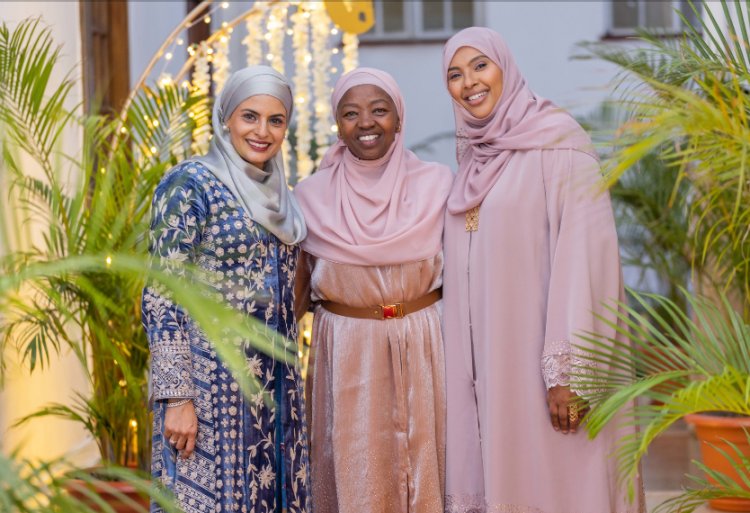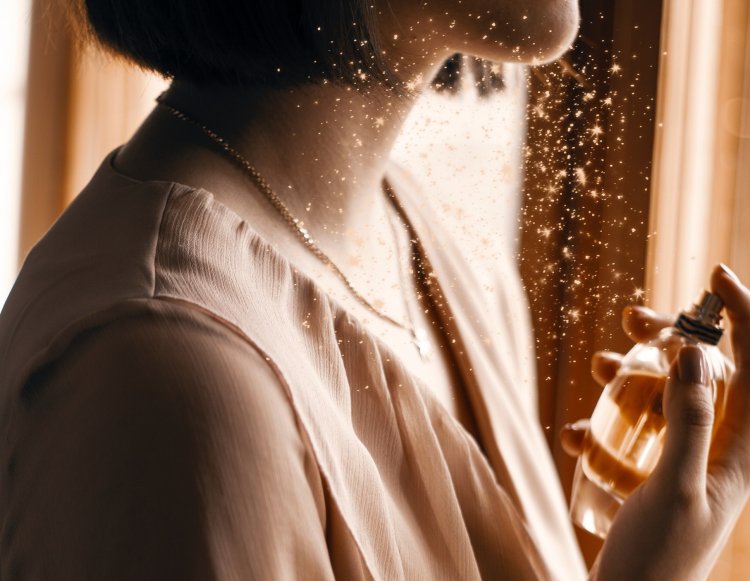Boniface Mwangi, Jamia Mosque Clash Over Muslim Women Wearing Perfumes
On Thursday, November 2, Jamia Mosque on X (formerly Twitter) penned a post outlining habits Muslim women should not do, which it termed as 'haram'.

Human rights activist, Boniface Mwangi and Jamia Mosque in Nairobi found themselves at odds with each other after he questioned the area of worship over forbidding women in Muslim faith to don perfumes.
On Thursday, November 2, Jamia Mosque on X (formerly Twitter) penned a post outlining habits Muslim women should not do, which it termed as 'haram'.
Harām (حرام, harām) is an Arabic adjective that in Islam describes anything that is “forbidden, inviolable, sacred” according to sharia law. In its ambiguity, it corresponds most closely to the concept of taboo in German.
The opposite of harām is halāl (حلال), which refers to anything that is permitted by sharia law.

First Lady Rachel Ruto with Muslim women at State House on April 16, 2023. /PCS
Jamia Mosque thus forbid habits such as showing hair in public, hair extensions and wearing tight clothes among Muslim women.
Also rendered unlawful included using perfumes, doing heavy makeup and eyebrow plucking.
"Even smelling good is haram? Nuka jasho uingie mbiguni (try smelling bad and get into heaven)," slammed Mwangi.
"Jamia Mosque, why does religion dictate to women what to wear, but men can mostly wear or do whatever they want? So how does a woman showing her hair become a sin?"
Notably, the activist was not alone as another netizen called out the mosque for misleading the public.
"You need to give detailed accounts. Perfume is not haram, it is only not permissible to apply and leave their home but within the confines of their house, they can apply. Thank you," he wrote.
In a bid to save face, Jamia Mosque clarified that the 'haram' directive against Muslim women wearing perfumes applies when they are out in public spaces, explaining that this may attract men, which they say is forbidden.
"Islam is a way of life; hence, there are guidelines for dress codes for both genders. What has been highlighted pertains to women.
"Regarding perfume, women are allowed to apply it at home but not in public spaces, as it may lead to fitnah (attracting men, which is not permitted and is a step towards fornication)," Jamia Mosque explained.
Normally, when one wears perfume, the aim is to smell nice, particularly when you are going out to meet someone.
Perfumes in Kenya are hugely popular, so much so that many Kenyans are opting for refillable colognes which are usually sold at small beauty or cosmetic shops at a cheaper price compared to premium products found in supermarkets.
Perfumes Among Muslim Women
Perfumes and cosmetics have been a part of Islamic history for hundreds of years.
Grooming and cleanliness are not only recommended in Islamic practice but are also a requirement for daily activities and religious obligations, and therefore, when it comes to the use of perfumes, it is recommended for practising Muslims with certain guidelines.
One of the hadiths (accounts) that is often referred to in regards to perfume (specifically towards women), is the use of perfumes by women in a public setting outside her home or in the company of non-family members (excluding her husband).
Based on various translations of the accounts, a woman is not to wear perfume in public which can attract the attention of men.
"Scholars have also established various hadiths that warn women not to wear perfume to mosques for the same reason.
"In her house, however, or in the company of family and her husband, or in the company of other women, she may wear any perfume she desires," a post by Umar Dar, Inventor and CEO of Tuesday in Love Halal Nail Polish & Cosmetics, reveals in part on LinkedIn.







